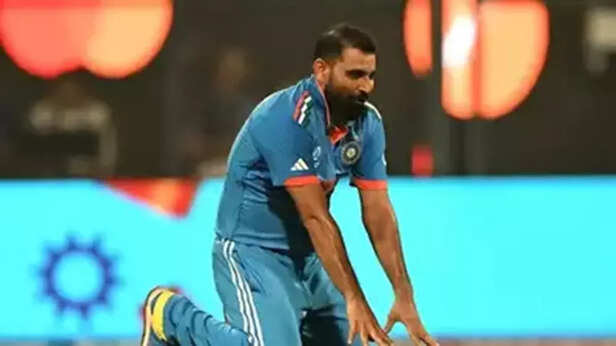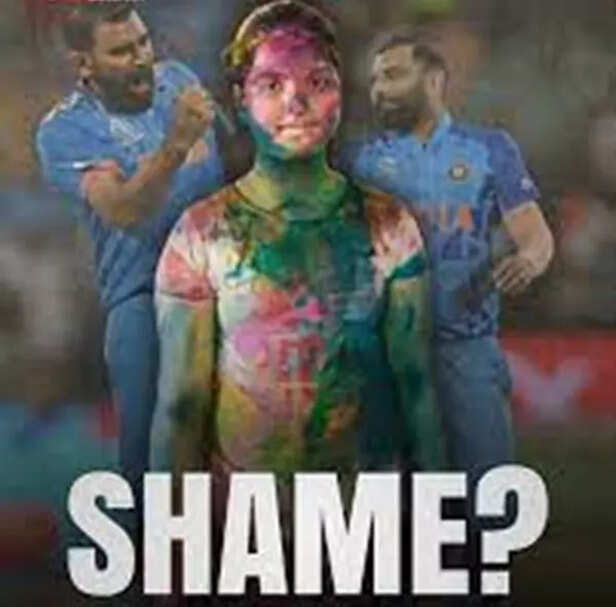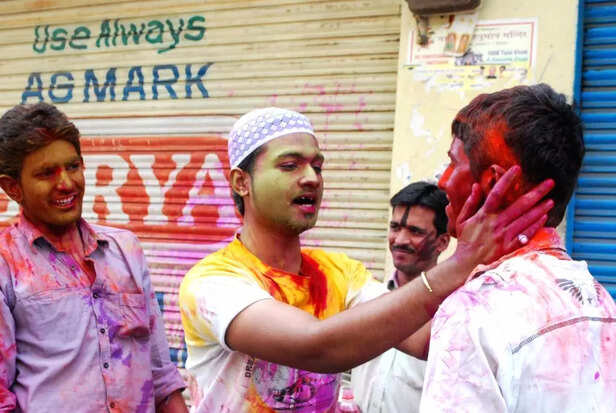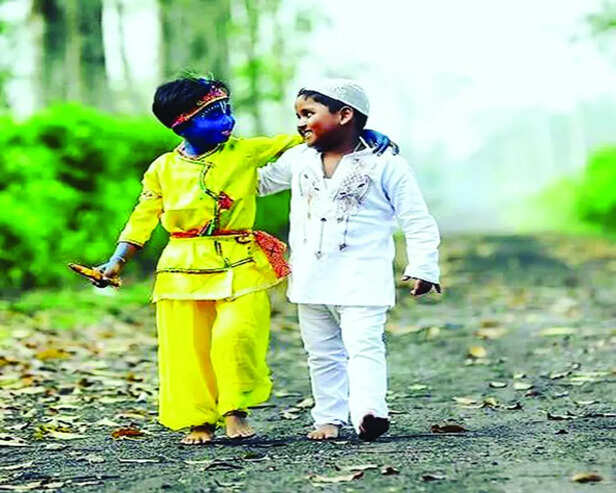Is Honesty Worth Criticism?
Over the years, Mohammad Shami has been a crucial part of the Indian cricket team, delivering exceptional performances and making the nation proud. His dedication and hard work have never been in question. However, time and again, he has faced unwarranted criticism for matters unrelated to his profession. This is not just about Shami; it’s about countless individuals who are scrutinized based on their religion rather than their contributions.

shami targeted for not observing fast
( Image credit : Times Life Bureau )
A person’s honesty, sincerity, and commitment should be appreciated, not condemned. The idea that a player’s religion overshadows their patriotism is deeply flawed. A soldier standing on the border does not ask his comrade about his religion before fighting for the nation. Then why does an athlete’s identity become a subject of debate?
Not Observing Fast for National Duty – A Huge Sin?
Another baseless argument often made is whether a Muslim sportsperson should observe fasts during Ramadan or prioritize national duty. The answer is simple: personal faith is an individual’s choice, and duty to the nation remains paramount.

shami recorded having juice in ramazan
( Image credit : Times Life Bureau )
APJ Abdul Kalam, the People’s President, was a devout Muslim and a scientist who never let religious practices interfere with his service to India. Similarly, several athletes and professionals from different religions have prioritized their duty, ensuring that their personal beliefs never come in the way of their professional responsibilities.
It is high time people stop equating religious practices with patriotism. Playing for the country, representing it on global platforms, and bringing laurels to the nation are acts of immense dedication and service. Instead of appreciating these individuals, why is society so eager to criticize them?
Can a 9-Year-Old Differentiate Between Colors and Religion?
Children see the world differently from adults. To them, festivals are about joy, celebration, and togetherness. A 9-year-old playing with colors on Holi is not thinking about religion; she is simply enjoying a festival like any other child. It is adults who impose religious divisions on something as innocent as applying colors.

9 years old blamed for celebrating holi
Are we now saying that a child celebrating Holi is a crime? If so, where do we draw the line? Would we then criticize a Hindu child for greeting their Muslim friends on Eid or a Christian child for lighting lamps on Diwali? Such regressive thinking only creates unnecessary divides in a society that has historically thrived on communal harmony.
Does Applying Color Become a Crime?
Holi is a festival that symbolizes the triumph of good over evil and celebrates unity. It is a time when people forget differences and come together in the spirit of joy. In fact, examples of communal harmony during Holi are endless. Every year, we see Hindus showering flowers on their Muslim brothers, and Muslim communities reciprocating with love and participation.

Hindu-Muslim unity in India
In several parts of India, it is common for people of different faiths to visit each other during festivals, exchange greetings, and participate in celebrations. Such acts of love and togetherness prove that communal harmony is not just an ideal but a reality. The few who try to create divisions must not be given the power to break this unity.
A Festival Celebrated from Akbar’s Time to APJ Abdul Kalam’s Time
Historically, Holi has been celebrated by people across religions. Emperor Akbar played Holi with his Hindu courtiers, setting an example of unity. Mughal paintings depict Holi celebrations in royal courts, emphasizing its cultural significance rather than religious boundaries.
Fast forward to modern India—APJ Abdul Kalam, one of the greatest minds and leaders of our nation, participated in Holi celebrations with equal enthusiasm. Does this mean he was any less of a Muslim? Certainly not. These examples show that festivals like Holi transcend religious labels and are an intrinsic part of India’s shared heritage.
The Nation’s Unity Cannot Be Broken
It is a handful of individuals who try to create discord between communities, but their attempts will always fail. The love that people share is far greater than the hatred some try to spread. India is a country where Hindus visit dargahs, Muslims participate in Diwali celebrations, Sikhs organize langars for people of all faiths, and Christians open their churches to everyone on Christmas. This is the real India.

love and harmony in India
The viral controversy over Shami’s daughter’s Holi picture is a mere distraction. The larger truth is that India remains a country of love, harmony, and mutual respect. Festivals are meant to bring people together, not divide them. Let’s focus on the beauty of togetherness and reject any attempt to create hatred. In the end, colors don’t have a religion—only minds filled with prejudice do.






